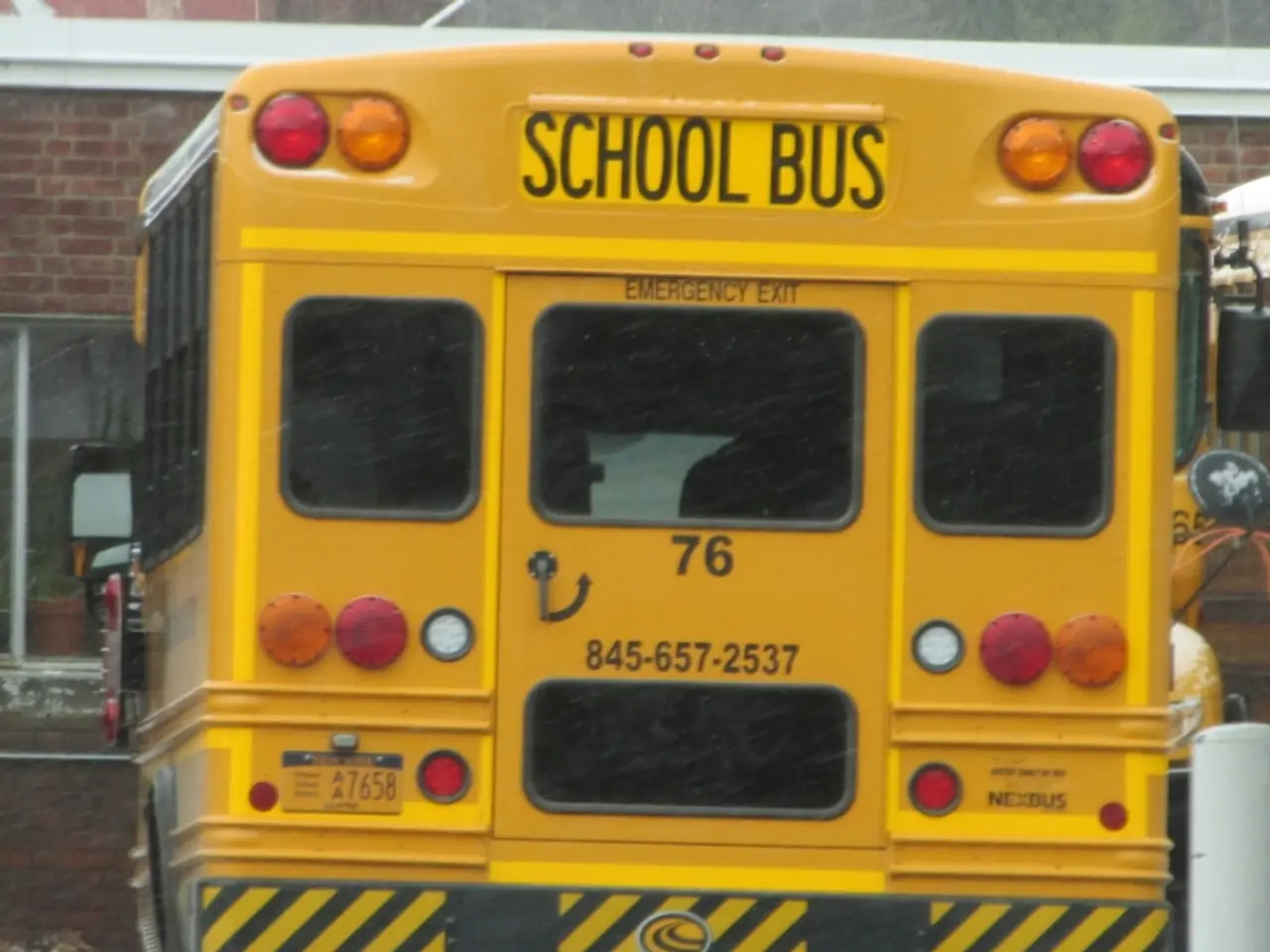Pupils and Guardians Finding More Joy and Wellness in School Journeys Through Electric Buses
The adoption of electric school buses (ESBs) in the United States is on the rise, but as of mid-2025, they still account for less than 3% of the total 480,000 school bus fleet. According to various reports, around 12,000 to nearly 14,000 electric school buses have been funded or committed across approximately 1,500 school districts, impacting over 16 million students.
The Environmental Protection Agency’s (EPA) Clean School Bus Program (CSBP), funded by the 2021 Bipartisan Infrastructure Law with $5 billion over five years, has been a major driver. As of July 2025, the CSBP has awarded funds to over 1,200 districts and supported over 8,500 electric school buses. In 2023, the CSBP rebate program awarded $900 million towards 3,200+ school buses, with 88% of those electric and 67% directed to EPA priority districts.
The rate of electric school bus adoption varies widely by state. Some states, such as New Hampshire, Rhode Island, and California, have over 5 ESBs per 10,000 students, while others like Texas, Alabama, and Ohio have fewer than 1 per 10,000 students.
Despite the growing adoption, the costs of electric school buses remain high, averaging around $300,000 or more each. This high cost presents a challenge to broader adoption, despite federal funding support. While the ongoing operational savings from fuel and maintenance are expected, many districts rely on federal funding to offset purchase costs, and full cost-benefit analyses remain ongoing as fleets scale.
Parents and health advocates support electric school buses due to major health benefits. Reductions in diesel exhaust pollution linked to cancer, asthma, respiratory problems, and negative impacts on brain development in children are significant advantages. Studies indicate that students riding electric buses experience healthier, quieter rides, with potential improvements in student performance and attendance due to better air quality and reduced noise pollution.
A new survey conducted by Highland Electric Fleets reveals that 65% of U.S. parents prefer their children to ride on electric school buses instead of diesel-powered ones. However, the survey also highlighted a knowledge gap surrounding the economics of electric buses. The push for electric school buses is driven largely by health concerns, with 89% of surveyed parents ranking air quality and a safe, healthy commute among their top priorities.
Sue Gander, director of the World Resources Institute's Electric School Bus Initiative, stated that electric school buses are an investment in children's health and the environment. Despite the cost concerns, 34% of these parents indicated they would reconsider if shown that electric buses could save school districts and taxpayers money.
As of now, only 2.5% of the nation's more than 500,000 school buses are currently electric or committed to electrification. Most parents accurately identified electric buses as a cleaner alternative to diesel, producing fewer harmful emissions. Among the 35% of parents who expressed a preference for diesel buses, cost was the primary concern.
The transition to electric school buses is a significant step towards a cleaner, healthier future for America's students. As costs come down and more parents and communities understand the benefits, it is expected that the adoption rate will continue to increase.
- The Environmental Protection Agency's Clean School Bus Program, funded by the 2021 Bipartisan Infrastructure Law, has been a major driver in the adoption of electric school buses (ESBs), awarding funds to over 1,200 districts and supporting over 8,500 ESBs as of July 2025.
- Studies indicate that students riding electric school buses experience healthier, quieter rides, with potential improvements in student performance and attendance due to better air quality and reduced noise pollution.
- Sue Gander, director of the World Resources Institute's Electric School Bus Initiative, stated that electric school buses are an investment in children's health and the environment.
- Despite the cost concerns, 34% of parents indicated they would reconsider if shown that electric buses could save school districts and taxpayers money, indicating a potential shift in preference as costs decrease and benefits become more understood.




